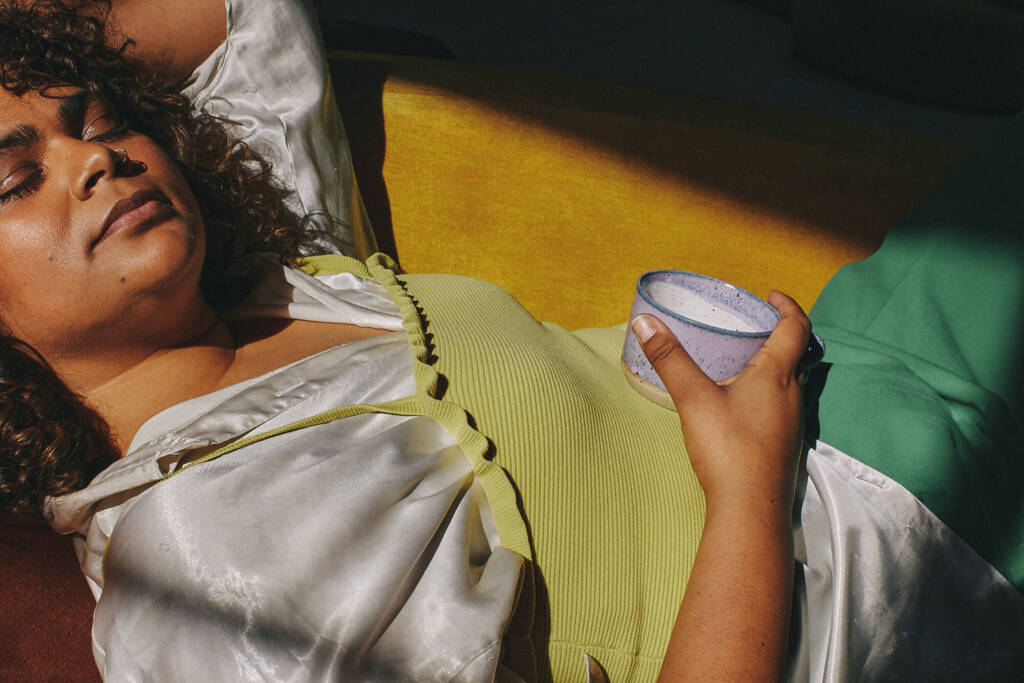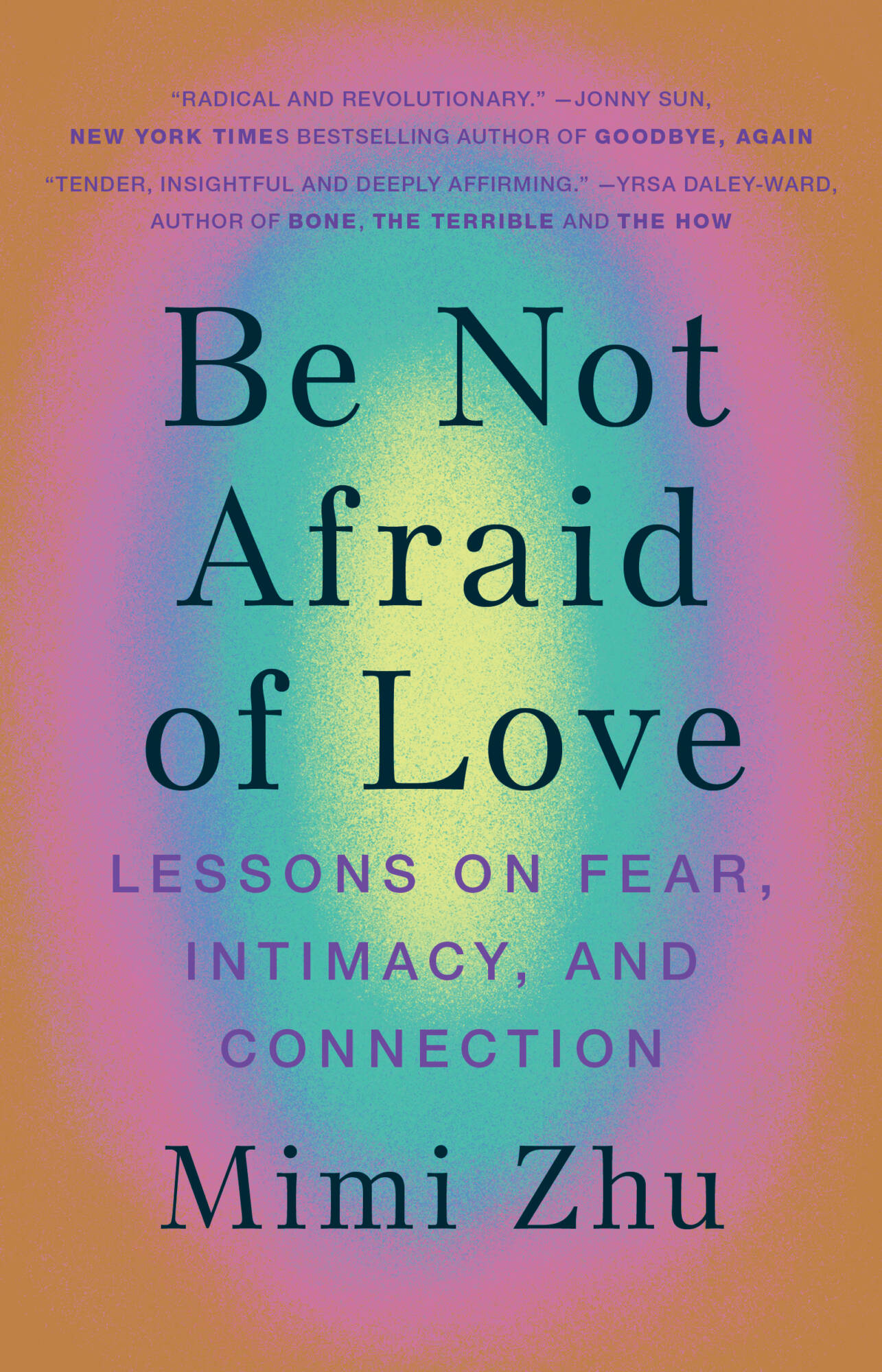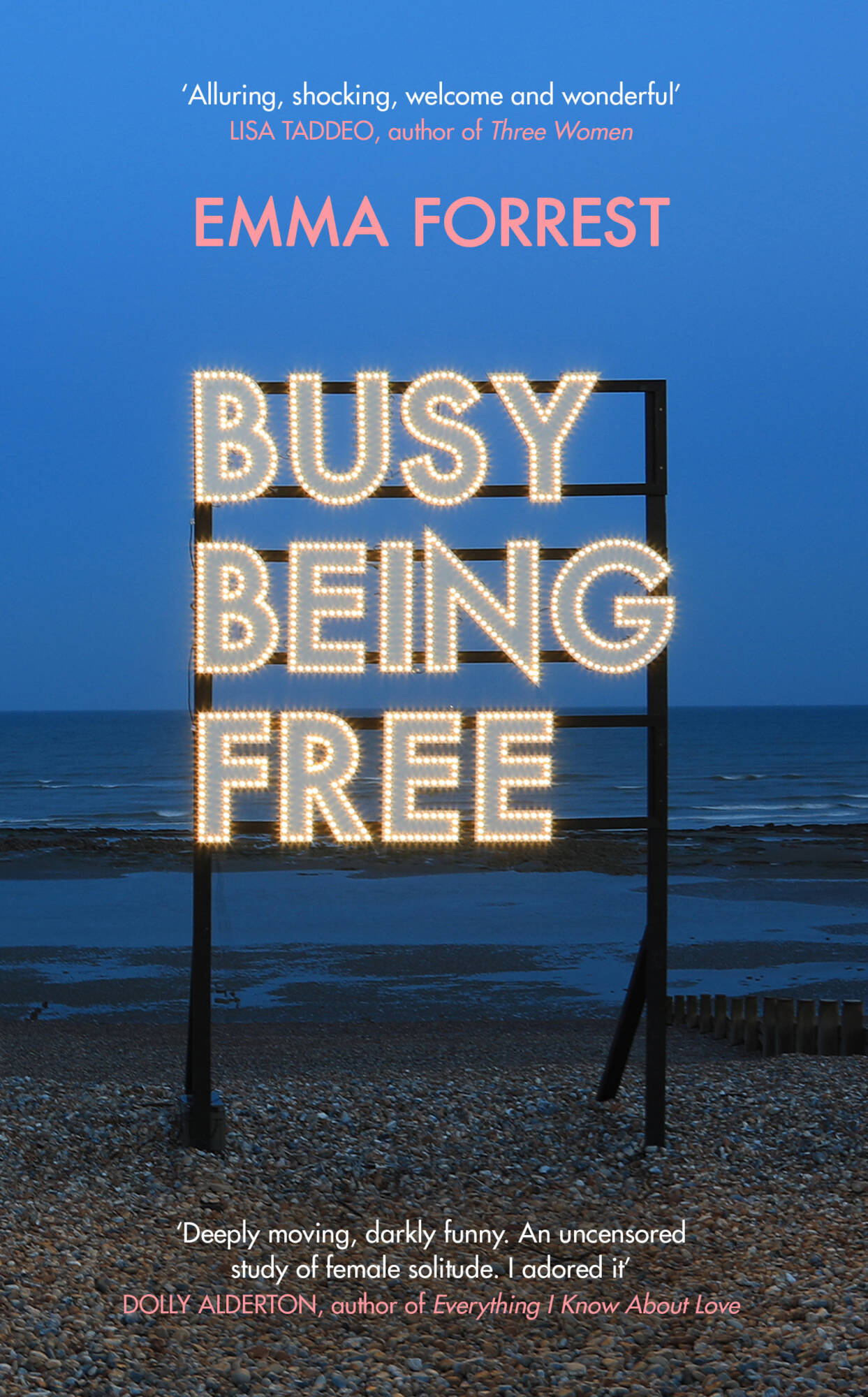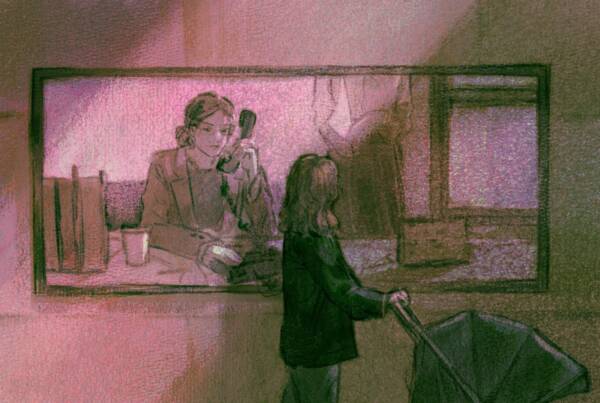Writing by Lucy Berry // photograph by Laura May Grogan
 Two recent memoirs I’ve read come from writers with their own very specific lived experiences and deliciously contrasting styles. But Mimi Zhu’s Be Not Afraid of Love: Lessons on Fear, Intimacy, and Connection and Emma Forrest’s Busy Being Free: A Lifelong Romantic is Seduced by Solitude both question the cruel idealism of how we’re convinced to rely on romantic love as our primary source of emotional and psychic nourishment.
Two recent memoirs I’ve read come from writers with their own very specific lived experiences and deliciously contrasting styles. But Mimi Zhu’s Be Not Afraid of Love: Lessons on Fear, Intimacy, and Connection and Emma Forrest’s Busy Being Free: A Lifelong Romantic is Seduced by Solitude both question the cruel idealism of how we’re convinced to rely on romantic love as our primary source of emotional and psychic nourishment.
As so often happens, I found these books when I needed them. Single for the first time in over a decade, my conflicting desires and fears ebb and flow. I want connection but I don’t want pain. I recognise the enduring loves of my life: my platonic friendships and my family, including the father of my child. Those have sustained me as romantic attachments have come and gone. And yet.
That same child reaches for Be Not Afraid of Love in the bookshop; drawn by its beautiful rainbow shimmer cover. The title pulls to me in turn: this will tell me how I feel. And in many meaningful ways, it does. From the first line, in fact: ‘I must be honest, I am terrified of love.’
Mimi Zhu’s story is their own, of course. They’re a queer Chinese Australian writer and artist – with a beautifully lyrical writing style – and in this engrossing collection of essays they explore the aftermath of intimate partner violence; physical, sexual and emotional. The relationship with ‘X’ shattered them, and yet the title of the book is its thesis.
Be not afraid of love.
Love, though, in Mimi’s telling, means many things. All things, even. Community, connectedness, resilience, the natural world. ‘An active form of miracle-ing.’ Their examination in particular of anger as a healing, galvanising emotion spoke to some deep, hot well in me. Mimi often in these essays, as they put it, ‘zooms out’ to consider love and relationships at the macro level of our societies; somehow sewing this to intimacy between each of us: tiny pinpricks in a galaxy and galaxies ourselves.
I have felt something like the necessary numbness Mimi relates to the ‘abundant desert’, after the relationship structures we’re taught to seek fall or are torn away from us. Ending a partnership that had provided the frame on which I wove more than half my adult life had required journeying deep into that desert. Action above all else, the immense expenditure of energy needed to set up an entirely new existence, plain survival. None of it left space for feeling. Maybe not until I read these books.
Because reading about Mimi Zhu’s conscious decision to tenaciously embody love, over and after time, alongside grief and all the other complex emotional experiences that make us human, and to be open to the possibility of romantic love while not stepping into it just yet, offers the connectedness of which they write so poetically.
Be Not Afraid of Love opens with a searing account of a specific incident of physical violence from Mimi’s former partner, ‘X’. It is stomach-churning, and deeply frightening. You feel their terror, their distress, and their anguished mix of love, rage, shame over the months and words that follow.
They explore this process in a rough alignment with the Westberg ten stages of grief model, with chapters titled numbness, anger, anxiety, grief, distrust, shame, presence, community, miracle and, finally, love. The book moved me in the same moment as it mirrored the experience of reading it:
‘Once or twice, I cried just knowing that there were people around me who were experiencing soothing reprieve from the pain in their lives.’ – Mimi Zhu, Be Not Afraid of Love
Throughout their own deeply individual journey towards healing, Mimi explicitly examines oppressive structures and their influence on and interdependency with abuse and violence – and love, too. White supremacy, patriarchy, ‘ornamentalism’, heterocentrism, and the relentless spiralling drain of the capitalist state are all part of their sensitive, cross-disciplinary analysis.
‘We cannot put our lives in the hands of those who wish to dominate us, and our collective restlessness shows me that we wish to break free.” – Mimi Zhu, Be Not Afraid of Love
Then, somewhere down the road of regeneration that Mimi walks in Be Not Afraid of Love, and invites us to walk, too, you start to feel the warm glow of a future filled with the possible: love and acceptance like their beloved grandfather embodied, joy and communion, and at the end of everything, the self.
Mimi Zhu’s poetic consideration of these topics and their experiences, and the social and societal webs we’re suspended within, sits in stylistic contrast with Emma Forrest’s most recent memoir, Busy Being Free. The two books, however, provide a compelling dovetail of the personal, the cultural and the universal that we can identify in infinitely refracted love.
Forrest is English, a ‘bookish Jew’, and an all-time aesthete. Her early life as a teen prodigy music journalist turned novelist and screenwriter provided the brittle, glittering landscape of her previous memoir of creativity and mental anguish, ‘Your Voice in My Head’, written in tribute to her late psychiatrist. Once ‘the suicidal girl’s suicidal girl’, now she’s found herself returning to a pedestrian London, divorced, a single parent and bruised from the not-quite of her Los Angeles career.
Busy Being Free’s intense romantic mapping, pop culture overwhelm and ‘Hollywood divorce’ are entertaining and on occasion tiring. But I don’t believe for a moment that’s accidental; Forrest is too astute an artistic and cultural critic. ‘He is a ridiculous human being, as am I,’ she notes, about her ex-husband Ben Mendelsohn (yes, that one, the Australian actor). However the Emma Forrest of this memoir in contrast to her last feels more circumspect, more tested and resilient. And, really, what other option is there as a single mum?
What pulled my attention sideways, though, is how Forrest nods to many of the same broader harmful relationships Zhu examines in Be Not Afraid of Love.
Forrest threads her essays in Busy Being Free with mentions of relational volatility that build over time: she deliberately chose a ‘scary’ husband, who ‘barked at strangers’, in part because of feeling and being unsafe in previous encounters with men. They eventually broker a productive co-parenting arrangement, but he definitely does scary things. Running into their night-time garden at a moment of conflict between them, brandishing a knife at an intruder who turns out not to be that at all, is just one.
This, after her description of decades of insult, abuse and assault at the hands and minds of other men, often much older, is sobering. ‘Love’ letters from an adult man when she was fourteen. A stranger spewing anti-Semitic bile. So wet is the water we swim in, Forrest chooses to individually highlight a couple of actual ‘good men’ she has encountered.
How do these forces shape us, our ambitions, our concept of self? Forrest writes of her previous compulsion to somehow absorb a vital essence from the men she’s slept with, especially as an oversexualised youthful object of their desires, turning outwards to live through them as much as with them, chasing validation rather than doing her work.
‘By the time he started playing ‘Good Woman’ by Cat Power, I’d walked up a flight and knocked on his door. A man with such taste must have something worth transferring. I’d introduced myself and now leaned there, a vampire waiting to be invited inside.’ – Emma Forrest, Busy Being Free
At her words I had that cold-water shock, the thrill of recognition. Forrest has plucked out something that gets missed, often, about how bright young women and femmes in our binary-obsessed and heterosexually centred dominant narratives are socialised to exist in relation to men. Not just to desire and pursue them but to believe we can acquire through romantic or sexual osmosis the talent, ambition or meaning we see only in others for as long as we fail to seek the same in ourselves.
‘Time and again, I have mistaken desire for love.’ – Mimi Zhu, Be Not Afraid of Love
I think back on my baby teen self sitting, rapt, watching boy after boy play basketball or guitar or skate the bowl, passively observing when I had precious things of my own to do. Much later, in the surprisingly turbulent emotional aftermath of my first minor entanglement post-separation, I said to a sympathetic friend, tearfully, while our children tumbled on soft play mats nearby, ‘I don’t know if I want to be with him, or to be him.’ And I still don’t.
To be free. To come and go, but really just to go.
Freedom was never something I sought overtly as I became a woman and a mother; as I lashed myself more and more tightly to the romantic ideal of virtually every film, song and book I’d ever consumed. Perhaps because, as a middle class white woman, I thought being free meant adventure, and that a vaguely introverted homebody had no such concerns. I didn’t realise that to be alone, to journey inwards, to fall in love with our own thoughts and work, to create community; these are all freedoms as pure as scaling distant snow-capped peaks.
Choosing to become single and live alone for fifty percent of the week has offered me the sacred time and space to be curious about myself, my own interests and my own creative work. This is something our society so rarely offers as a viable option, in part because it requires significant financial and social capital, and in my case, a co-parent I can rely on. The freedom to as well as freedom from.
‘I picture having a long day’s work in my top-floor flat – resting and reading and writing. And at the end of the day, when the sun turned down and dusk fell, I visualise changing my clothes and a man coming to my door. But … the sexual fantasy is dependent on first having my time alone, or it doesn’t light my fire.’ – Emma Forrest, Busy Being Free
Mimi Zhu deliberately took time away from romantic relationships after surviving the abusive X, to rediscover trust in themselves and non-romantic loved ones. Emma Forrest remained celibate, instinctively then deliberately, for the duration of Trump’s presidency. I find myself circling the idea of inviting romantic love into my life again, yet, while not celibate, am increasingly amazed by the depth of connection offered by relationships outside this schema.
‘Celibacy was not only bearable, it was epic – a place inside myself where a woman can run late at night with headphones in her ears and not feel afraid.’ Emma Forrest, Busy Being Free
I don’t mean to casually lump in together Mimi Zhu’s and Emma Forrest’s stories and work (or my own experiences). Mimi in particular overtly emphasises the specific and personal-political aspects of their story, and the need for sensitive nuance in all considerations of these. I hope by highlighting some shared themes, as I read them, between these memoirs: of love, trauma, healing and hope – and seeking romance transformed, as self-love and vulnerability – I’ll encourage you to read both.
Because, as Mimi Zhu writes, ‘I was reminded that even in my hopelessness, love was all around. It did not have to be “mine”, but it was still connected to me. I felt lucky to bear witness to love.’








